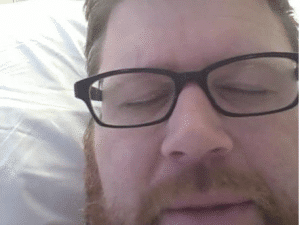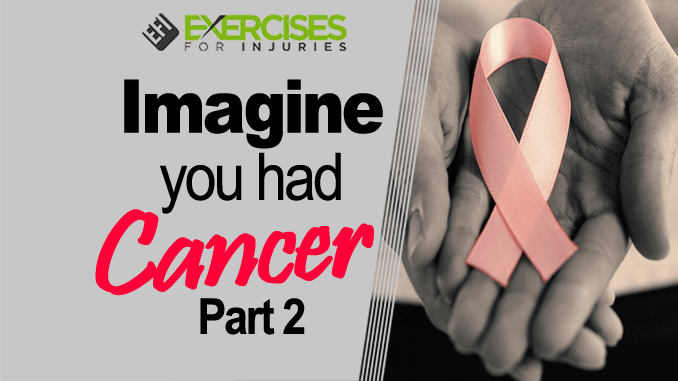Do you have a bucket list? If not, it’s time to create one. After all, who knows how much time we have on this planet. Life is unpredictable, and no one knows when their final days will come. You never know if tomorrow will be your last day on earth. Cancer has touched millions of lives around the world in some way or another. It doesn’t discriminate; it can strike anyone at any age, gender, or race and there are many types of cancer that exist. If you found out that you had cancer, how would you react? Would you panic? Or would you find strength from somewhere to fight it and try to find meaning in this terrible disease? Well, read on to discover how reading about others coping with the same illness could help you deal with it should the unthinkable happen to you one day.
Your doctor has just informed you that you have cancer.
It’s treatable, but it’s going to mean surgery and chemotherapy, which will more than likely make you lose your hair. You will most likely be constantly sick, tired beyond belief, and unable to work.
According to the physician, keeping healthy during the treatment is critical to its success. In addition, staying physically active will help you cope with the condition and maximize the treatment’s results, he said. It is likely that you will be chronically ill, fatigued, and unable to work if you are infected, requiring surgery and chemotherapy.
What now?
You inform your family, and of course, they’re devastated but willing to stand by you to do whatever it takes to help you through this trying time.
Your oncologist told you to keep fit through treatment, but the gym staff doesn’t know anything about cancer or exercise. Unfortunately, there are few trainers worldwide who specialize in Oncology exercises.
It’s good news that one of the instructors knows of a product that may help you recover from cancer and give you the direction you need. It’s called:
HOW EXERCISE CAN HELP YOU BEAT CANCER – THE ULTIMATE SURVIVORS’ GUIDE
Dean Somerset, a kinesiologist in Edmonton, Alberta, wrote it. He has studied cancer in laboratory, clinical, and research trials and trained dozens of cancer patients throughout their treatments.
Professionals worldwide are rare to have this level of fitness education and training. You’ll be working gradually to stay as healthy as possible based on your treatment schedule. Anyone can benefit from the video seminars for professionals and nonprofessionals since anyone can benefit from it.
Before today, you didn’t know what to do. Now, you have hope that you will make it through this alright.
Imagine Your Client Had Cancer
A client cries as she tells you she just received a diagnosis of cancer and will require surgery, chemotherapy, and radiation treatment. The doctor instructed her to exercise to help handle the therapy, but she is terrified about what it will be like.
Never having worked with anyone who had cancer, you’re understandably a little scared and have absolutely no idea where to begin. Fortunately, you just finished reading a blog post that directed you to The Ultimate Survivors’ Guide program. You decided that there’s no better time than now to get it.
When you get it, there are several video presentations, one specifically for fitness professionals and one for the average client. You study the professionals’ video and give your client a copy of the nonprofessional’s video to help them understand what’s going on and your plan. They are excited that their trainer cares enough about them to want to learn more about cancer and immediately tell their doctor, spouse, and anyone. They will listen to how amazing you are and help you. The Ultimate Survivors’ Guide has provided you with an immense educational resource as well as a new advocate, an inspiration to all the gym patrons, and a new source of referrals.
Two Common Scenarios
The ultimate survivors’ guide to beating cancer offers two common scenarios in which exercise can play a critical role. This unique two-tiered perspective and training program is particularly well-suited to helping cancer patients and those who assist them.
Dozens of clients recovering from and experiencing cancer therapies have finished their treatments with significant fitness gains recorded in research trials. You likely know someone who is currently battling cancer. You can assist them (or yourself) benefit from a structured program that helps overcome cancer by helping you. No other program considers a cancer patient’s treatment schedule and the physical stresses it creates.
Following this program, someone recovering from cancer can see improved strength, balance, and cardio fitness, as well as tolerance of treatments and a sense of feeling normal once again, something they would give anything to feel again.
Rick Kaselj, MS

